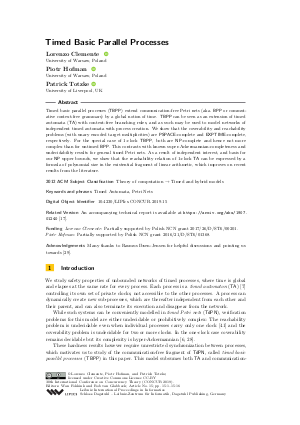LIPIcs.CONCUR.2019.15.pdf
- Filesize: 0.74 MB
- 16 pages

 Creative Commons Attribution 3.0 Unported license
Creative Commons Attribution 3.0 Unported license























Feedback for Dagstuhl Publishing